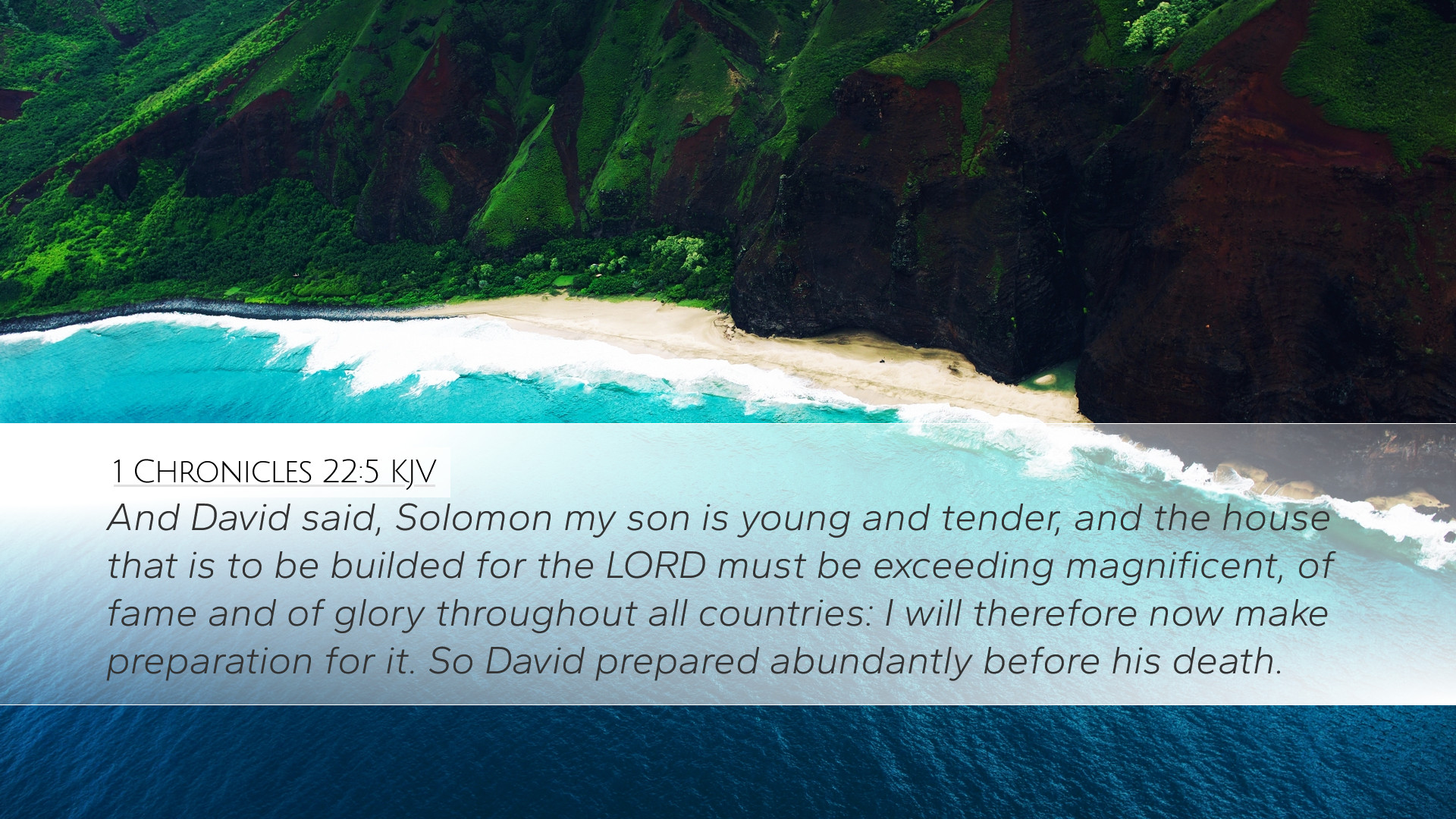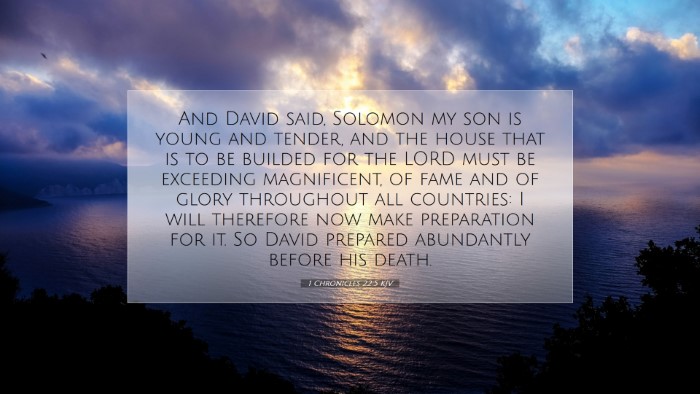Commentary on 1 Chronicles 22:5
Verse: "And David said, Solomon my son is young and tender, and the house that is to be builded for the LORD must be exceeding magnifical, of fame and of glory throughout all countries: I will therefore now make preparation for it. So David prepared abundantly before his death."
Introduction
This verse reveals David's intentions regarding the construction of the temple, a project of profound significance both spiritually and culturally for the Israelites. It serves as a critical transitional moment in Israel’s history, marking the preparation for a place where God's presence would dwell among His people.
The Significance of Solomon
Matthew Henry highlights the tenderness of Solomon’s youth, indicating his inexperience and the daunting responsibility that lies ahead. David’s recognition of Solomon’s youth encompasses not only a physical evaluation but also a spiritual and moral concern as he prepares his son for leadership.
Albert Barnes emphasizes Solomon's youth as a point of caution and suggests that David's guidance plays a critical role in preparing Solomon for future responsibilities. This notion brings to light the importance of mentorship and training in leadership roles within the church and community.
Preparation for the Temple
The term "magnifical" captures David's desire for the temple to possess extraordinary beauty and grandeur, representative of God's majesty. Adam Clarke notes that this desire reflects David's deep reverence for God and acknowledgment of His greatness. The temple is not merely a structure but a holy space dedicated to worship and service.
- Symbolism of the Temple: The temple signifies God's covenant with Israel and serves as a meeting place between God and His people.
- Preparation Involved: David engaged in thorough preparations, which included gathering materials and planning, pointing to the importance of diligence and foresight in spiritual endeavors.
David's Legacy
David’s proactive steps in preparation demonstrate his commitment to leaving a lasting spiritual legacy. Henry observes that David’s actions foreshadow the temple's significance that would extend beyond mere architecture; it represents a divine mission for future generations. The great fame and glory of the temple would become a source of pride and unity for the Israelites.
Theological Reflections
The emphasis on preparation in this verse transcends the physical act of building a temple; it embodies spiritual readiness. Barnes asserts that the preparations highlight the significance of worship and the intentionality behind engaging in a relationship with God. The temple becomes a vital instrument through which God's presence is realized among His people.
Practical Applications
For pastors, students, and theologians, this verse prompts essential considerations regarding ministry and the spiritual lives of congregations:
- Mentorship: Like David, leaders must invest time in mentoring the younger generation, preparing them for future responsibilities.
- Preparation: Just as David meticulously prepared for the temple, modern ministries must engage in thorough planning and preparation for spiritual work.
- Honor God: The grand vision for the temple serves as a reminder to honor God in all efforts, ensuring that our worship and endeavors reflect His glory.
Conclusion
1 Chronicles 22:5 captivates both the historical and theological narratives of the biblical text. It encourages a multi-faceted approach to understanding leadership, preparation, and the pursuit of glorifying God. As believers reflect on this verse, they are invited to join in the ongoing story of God’s presence among His people, paving the way for future generations to experience that same sacred encounter.


